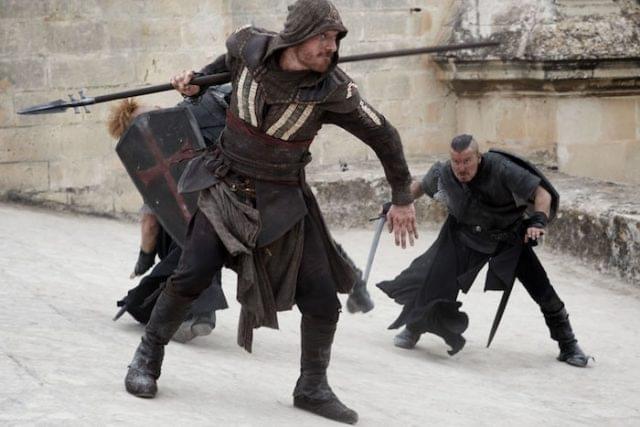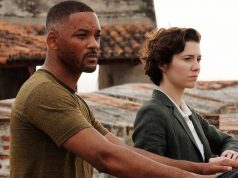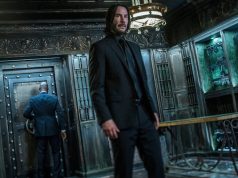
In a just world, the late-December movie starring Michael Fassbender, Marion Cotillard, Jeremy Irons, Charlotte Rampling, and Brendan Gleeson would be a lush historical epic or period drama. But since the world is garbage, it’s “Assassin’s Creed,” another turgid, muddy, useless video-game adaptation.
Our hero is Callum Lynch (Fassbender), a man who starts the film as a murderer but by the end has been transformed into an assassin. Shortly after being executed for his crimes in Texas, he wakes up in a secret facility in Spain, where Sofia Rikkin (Cotillard), a soothing doctor-y type, explains everything to him (under certain loose definitions of “explain” and “everything”).
Seems Lynch is the descendant of a man named Aguilar who, in 1492, last possessed the Apple of Eden, a mystical artifact that could be used to take away mankind’s freewill. Aguilar was in a league of Assassins whose mission was to prevent the Apple from falling into the hands of the Knights Templar, who would misuse it. The Assassins and the Knights are enemies, then, though they have the same general mission statement: find the Apple; kill anyone who gets in our way. “Everything is permitted. We work in the darkness to serve the light” goes the Assassins’ motto, echoing would could just as easily be the Templars’.
ANYWAY, Sofia and her father, Alan Rikkin (Irons), run the covert modern version of the Templars, an organization called the Abstergo Foundation, dedicated to world peace. Alan’s ostensible purpose is to eradicate violence by using the Apple to remove everyone’s ability to make choices. To that end, they hook Lynch up to a machine called the Animus, which uses his DNA to connect him with his ancestor, allowing him to relive Aguilar’s experiences and hopefully see where he put the Apple 500 years ago. This leads to many scenes of battle and bloodshed (and, for some reason, parkour) in Inquisition-era Spain, some of which is mindlessly watchable, in the same way that a football game between two teams you aren’t familiar with and can’t tell apart might be.
Lynch doesn’t like the Animus, except sometimes he gets into it, and he can’t leave the facility, but it’s not really a prison, except that it is. There are other Assassins being held not-quite-prisoner, too, but the only reason they’re in the film is so they can be in the sequel. There are recognizable human emotions and motivations buried under the layers of humorless exposition and tedious bloodletting, but director Justin Kurzel is about as interested in them as Jeremy Irons is in being in the film (i.e., not at all). Extraneous elements like “story” and “character” are abandoned so we can focus on what’s important: scene after scene of self-serious cyphers fighting over something we don’t care about. I smell something, but it’s not an Oscar.
On the other hand, when Marion Cotillard says “Animus,” it sounds like “enemas,” so that’s fun.
(Oh, right. Gleeson plays Lynch’s father, whose motivations and loyalties are as abstruse as everyone else’s. Rampling plays a higher-up in the Abstergo Foundation. I don’t remember what she does or why she’s in the movie, which I suspect is something she and I have in common.)
D (1 hr., 55 min.; )





